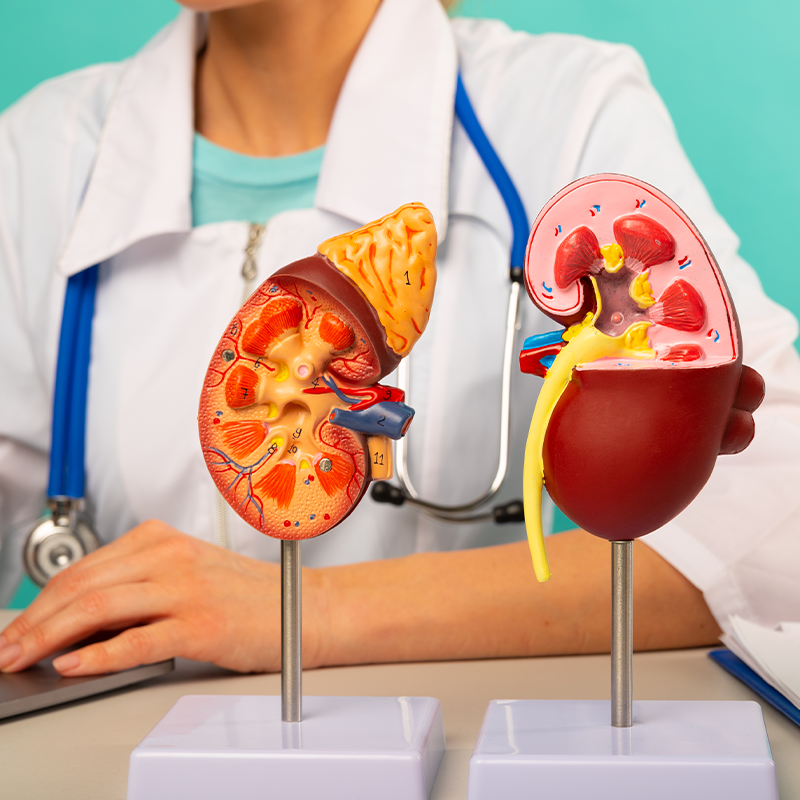Kidney Health Checkup Nagpur

kidney health checkup
Kidney health is crucial for overall well-being, and any dysfunction can lead to severe complications. Nagpur, a major city in Maharashtra, is home to some of the best kidney specialists (nephrologists) who provide advanced treatment for kidney-related disorders. Whether you’re dealing with chronic kidney disease (CKD), kidney stones, infections, or kidney failure, consulting a skilled nephrologist is essential.
Common Kidney Diseases & Symptoms
A. Chronic Kidney Disease (CKD)
- Causes: Diabetes, hypertension, genetic factors
- Symptoms: Fatigue, swelling in legs, frequent urination
B. Kidney Stones
- Causes: Dehydration, high salt diet
- Symptoms: Severe back pain, blood in urine
C. Urinary Tract Infections (UTI)
- Causes: Bacterial infection
- Symptoms: Burning sensation, cloudy urine
D. Acute Kidney Injury (AKI)
- Causes: Severe dehydration, medication toxicity
- Symptoms: Reduced urine output, confusion
E. Polycystic Kidney Disease (PKD)
- Causes: Genetic disorder
- Symptoms: High blood pressure, abdominal pain
Diagnostic Tests for Kidney Disorders
A. Blood Tests
- Serum Creatinine – Measures kidney filtration rate
- Blood Urea Nitrogen (BUN) – Checks waste levels
B. Urine Tests
- Urinalysis – Detects protein, blood, or infections
- 24-hour Urine Collection – Assesses kidney function
C. Imaging Tests
- Ultrasound – Detects kidney stones or cysts
- CT Scan/MRI – Provides detailed images of kidneys
D. Kidney Biopsy
- Used to diagnose kidney tissue damage
Treatment Options for Kidney Diseases
A. Medications
- ACE Inhibitors – For high blood pressure
- Diuretics – Reduce fluid retention
B. Dialysis
- Hemodialysis – Blood filtration via machine
- Peritoneal Dialysis – Uses abdominal lining for filtration
C. Kidney Transplant
- Living Donor Transplant – From a family member
- Deceased Donor Transplant – From a registered donor
D. Lifestyle Changes
- Low-sodium diet
- Regular exercise
- Hydration management
Roles and Responsibilities of a Kidney Specialist
Diagnosing Kidney Conditions
- Conducting blood and urine tests
- Performing kidney biopsies
- Using imaging tests (ultrasound, CT scan, MRI)
Managing Chronic Kidney Disease (CKD)
- Monitoring kidney function
- Prescribing medications to slow disease progression
- Recommending dietary changes
Treating Kidney Failure
- Dialysis (hemodialysis or peritoneal dialysis)
- Kidney transplant evaluation and post-transplant care
Managing Hypertension and Diabetes-Related Kidney Issues
- Controlling blood pressure and blood sugar levels
- Preventing further kidney damage
Preventive Measures for Kidney Health
- Stay Hydrated – Drink 3-4 liters of water daily
- Control Blood Sugar & Pressure – Prevents CKD
- Avoid Excessive Painkillers – Can damage kidneys
- Eat a Balanced Diet – Low salt, high fiber Contact Us
Conclusion
Kidney specialists (nephrologists) play a vital role in diagnosing and treating kidney diseases. Early detection and proper management can prevent kidney failure and improve quality of life. If you experience kidney-related symptoms, consult a nephrologist promptly. Book Appointment
